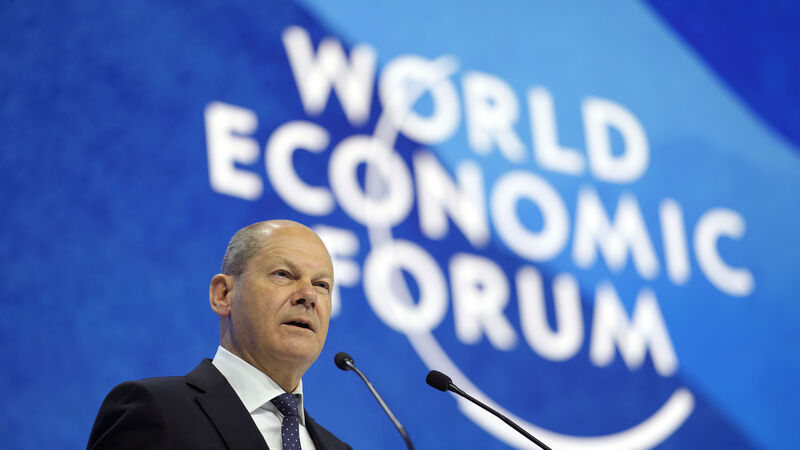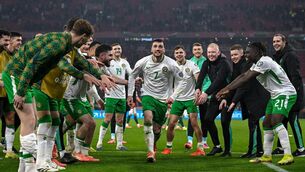Davos: Business and political leaders struggle with 'deglobalisation' at World Economic Forum

German chancellor Olaf Scholz speaks at the World Economic Forum in Davos.
World leaders, financiers, and chief executives said they were leaving this week's World Economic Forum (WEF) in Davos with an urgent sense of the need to reboot and redefine "globalisation".
The framework of open markets that has shaped the last three decades of commerce and geopolitics looks increasingly wobbly as trade spats fan economic nationalism, a pandemic exposes the fragility of global supply networks, and a war in Europe could reshape the geopolitical landscape.











